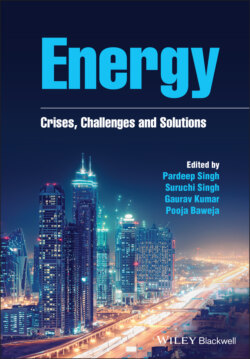Читать книгу Energy - Группа авторов - Страница 21
1.6.3 Hydrogen
ОглавлениеHydrogen is believed to be a colourless and odourless gas, which makes up 75% of the entire universe’s mass. Hydrogen is produced on Earth in combination with other materials such as carbon, nitrogen and oxygen. Hydrogen must first be removed from the other elements to be used for various purposes. The most inspiring and exciting idea and, at the same time, the most challenging challenge is to accept it as a fuel, considering that many businesses will be afraid to do so because it is a huge step forward to transform fully from gas to hydrogen and create a hydrogen‐powered car. While this transition in the sea will be a rough trip, some of the benefits will be great. Hydrogen‐based cars, for example, can be much more environmentally friendly than those that burn fuel. This will decrease noise and reduce the health problems that asthmatics face as a result of living near contaminated areas. The resource’s simple availability would be added, and the great advantage of converting to hydrogen, such as hydrogen, is about 70% of the Earth’s mass. All of it is dissolved in water, making it easy to collect. After the collection of water, the energy can be conveniently separated by flowing water. Another benefit is that considering that hydrogen is easier to refine than gasoline, it would be cheaper for the consumer and serve the purpose if cheap fuel were in high demand.
